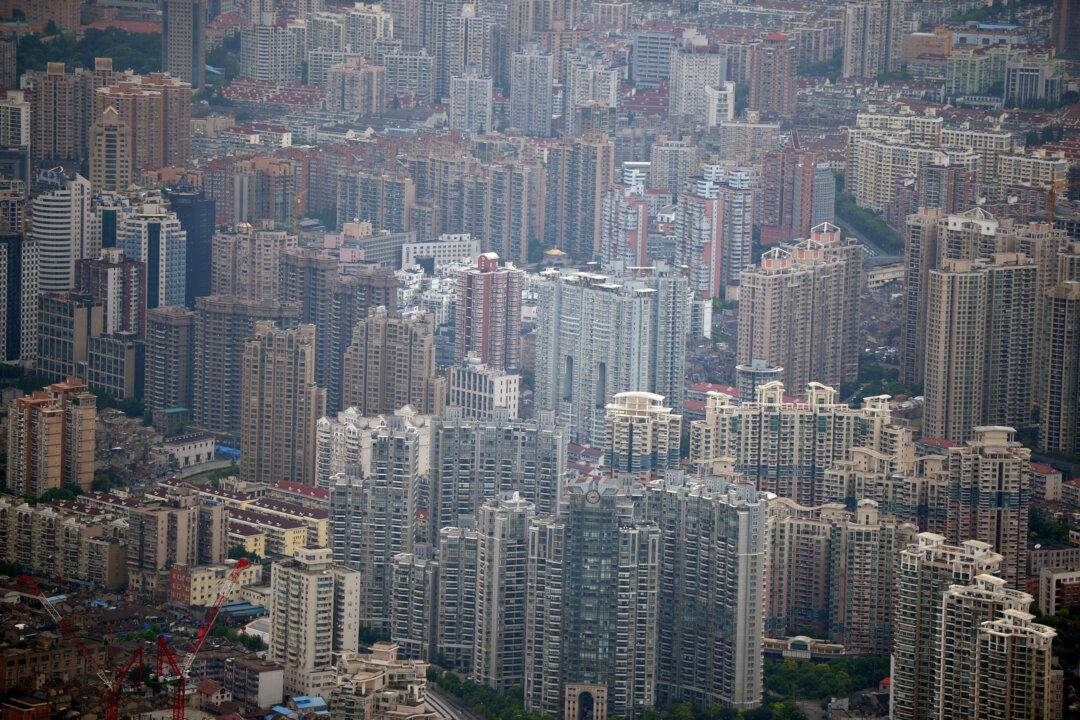“Refund our houses!” screamed protesters at the Tenhong Land sales office in Hangzhou, China, before smashing up house models, holding banners, and yelling at staff. They were furious that apartments in the same building, and similar to those they had just bought, were now being sold at a deep discount, damaging their investments.
The incident was the most recent case to highlight the danger of a housing market in China that has begun slowing down over the last three months. Analysts warn that with recent activity, a turning point may be on the horizon, barring further artificial stimulation of the economy by the authorities.
An official report from China Index Academy, which monitors property prices in 100 major cities, shows that the rate of increase in housing prices began slowing at the beginning of this year. The rate of real estate price increases had been continuous for 22 months, since June 2012. Apart from a slowing appreciation in housing, property prices in 37 out of 100 major cities dropped in March, one more city than last month, and 5 more cities than last December.
The chaos that took place in Hangzhou was the result of discounting like that experienced by Mrs. Pan. A Hangzhou resident, Pan bought a house at high price of 19,300 yuan per square meter a few hours before the huge price drop of up to 6,000 yuan ($964) per square meter announced by Tenhong. That made the housing 500,000 yuan ($80,366) cheaper than what she paid, according to China News.
Wharf Holdings in Chengdu also gave discounts of over 30 percent on some of its property. It also received a visceral response from investors.
“Unscrupulous profiteers! Price gouging! Return our money!” said some of the banners that outraged homeowners held up at the Wharf’s sales building on April 8, according to China Business.
Several hundred angry investors have protested there for days, demanding an explanation from the company.
The volume of transactions also dropped around the country, according to the China Real Estate Index System. The four top-tier cities—Beijing, Shanghai, Guangzhou, and Shenzhen—had an over 40 percent drop in transactions, while transactions in Beijing dropped by over 55 percent.
The changes are due to extended oversupply, experts said.
Gordon G. Chang, a writer and analyst of China, said that some of Hangzhou’s problems came from “massive overbuilding.”
Jason Ma, a commentator on China affairs, who hosts a program on New Tang Dynasty Television, said that the main thing supporting housing prices is demand by investors—not necessarily people who plan to live in the homes they’re buying.
“China’s house ownership is already very high, especially in third- and fourth-tier cities, where it has reached 80 to 90 percent,” Ma said in a telephone interview. China ranks its cities in four tiers, based on their level of economic development. “For those cities, real estate is supported by investment,” he said.
Falling prices—something not seen in China—will cause investors to withdraw from the market. This will have a self-reinforcing impact, he said.
China’s land is state owned, and government agencies have controlled the land supply, which in part has led to skyrocketing housing prices, Ma said.
“China’s real estate may reach a turning point this year,” Ma said, “if the Communist Party doesn’t stimulate the market by printing large amounts of money, as it has done before.”




